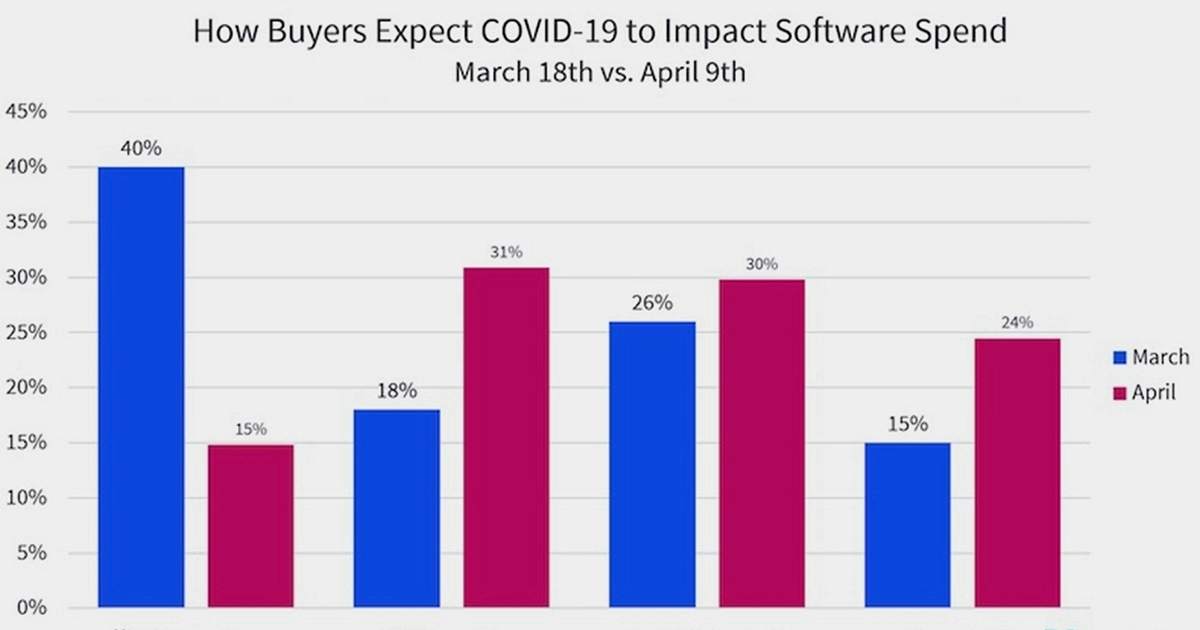
Why Martech Fails, and What Really Fuels Martech Success Today
Martech implementations often fail all too often. Discover the factors that drive failure and those that fuel success and sustained ROI. Read more.

According to recent research from TrustRadius, B2B companies tend to agree that the COVID-19 pandemic will lead them to cut or maintain their software budgets, depending on the type of software. 31% of respondents say they expect to spend less, 30% say the pandemic won't have an impact, and 15% say they'll likely spend more.
The areas that B2B firms are cutting the most are marketing software (44%) and IT support technology (36%). The areas where B2B firms are increasing spending are Web conferencing software (67%) and collaboration tools (57%). The research was conducted on April 9-10, 2020 among 2,168 software buyers.
Though many B2B companies are uncertain of their software budget during the pandemic, the data indicates that they are likely to cut spending in certain areas while increasing in others.

COVID-19's Impact on B2B Software Budgets
Don't worry ... it's FREE!
Martech implementations often fail all too often. Discover the factors that drive failure and those that fuel success and sustained ROI. Read more.
Which factors are most important to B2B sales teams when choosing a CRM? What are salespeople's biggest complaints with their current CRM solution? Which challenges do they hope AI integrations in their CRM can help with?
What are the most common challenges that businesses face with martech implementations? What can teams do differently to avoid unsuccessful implementations?
Discover how repeatable events help marketers scale engagement, streamline workflows, and drive performance across channels. Explore strategies and tools that make it possible. Read more.
CMOs face mounting pressure to make martech deliver. Learn how to realign tech stacks for strategic, revenue-driven impact. Read more.
What are the top things marketing-decision makers value when selecting software vendors? Which sources of information do they turn to most often when evaluating vendors? What are their software spend plans for 2025?